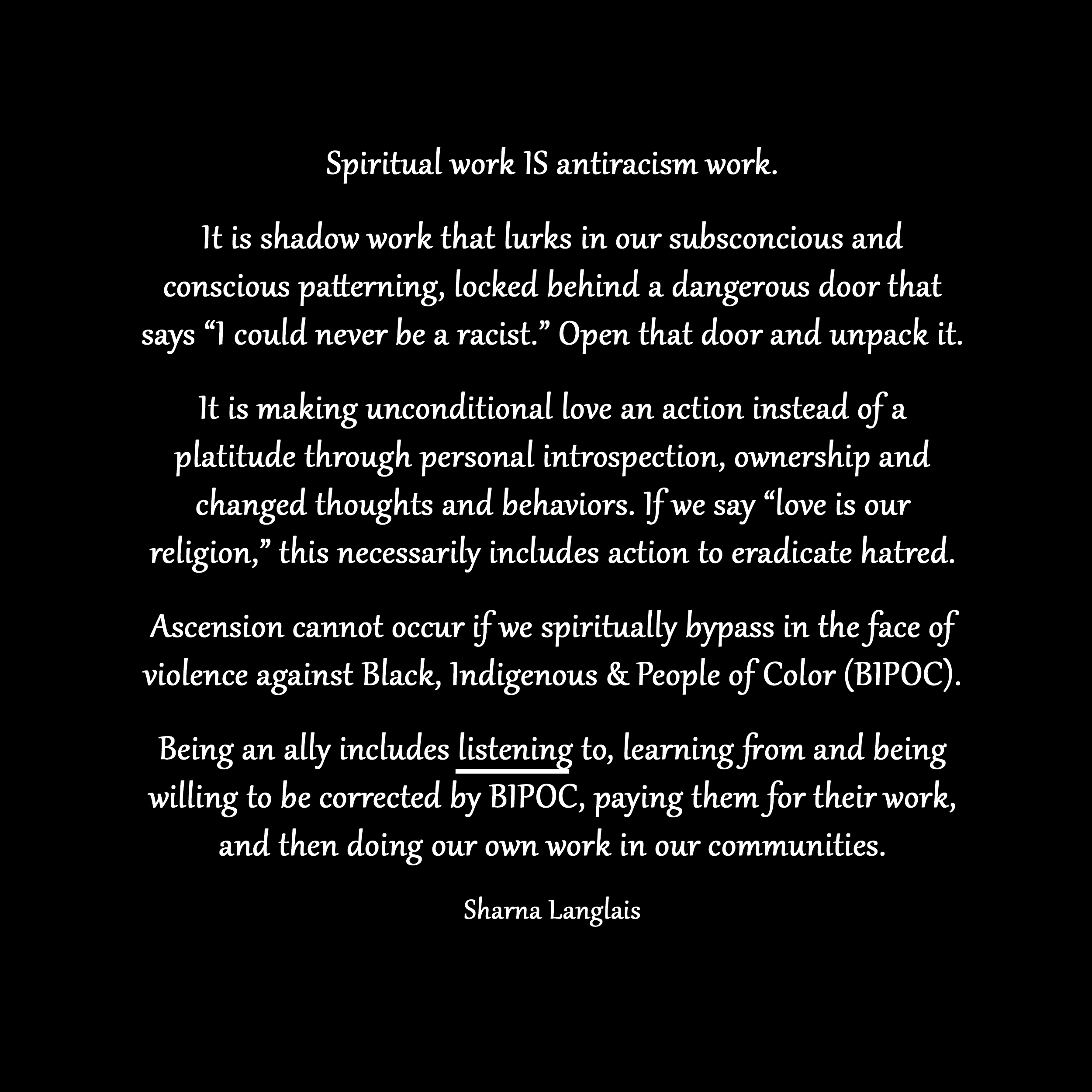In contemporary society, the ramifications of racism permeate myriad aspects of human interaction, often manifesting in insidious ways. The Bahá’í teachings present a profound blueprint for dismantling these entrenched prejudices, emphasizing the cultivation of spiritual immunity against the deleterious effects of racism. This ethos calls for a profound internal transformation that transcends superficial understanding and engages the heart and soul.
The concept of spiritual immunity is predicated on the understanding that racism is not merely an external social construct but also an internal manifestation of ignorance and misunderstanding. Thus, the first step toward building this immunity involves recognizing one’s own biases and preconceived notions. Self-reflection, facilitated by prayer and meditation, forms the cornerstone of this process. By fostering a genuine appreciation for the interconnectedness of all humanity, individuals can begin to dislodge the roots of prejudice that may lie dormant within.
Bahá’í teachings assert the oneness of humanity as a fundamental principle. This principle encourages individuals to envision a world where distinctions based on race, ethnicity, or nationality are seen as irrelevant. Such a paradigm shift is essential; it fosters an innate sense of belonging where diversity is celebrated. Engaging with literature from various cultures, attending community events, and forming relationships across lines of difference are practical ways to cultivate an appreciation for this oneness.
The next facet of constructing spiritual immunity to racism lies in the actualization of love and service towards others. Service, in the Bahá’í context, is not merely an act of charity but a profound expression of oneness that permeates the very fabric of our communities. This involves active participation in efforts aimed at eradicating social injustice and promoting equality. By immersing oneself in service-oriented initiatives, individuals not only advocate for the marginalized but also reinforce their own commitment to the eradication of racism within themselves and their communities.
Education also plays a pivotal role in dispelling the fog of racial misconceptions. The Bahá’í Faith underscores the necessity for comprehensive education as a tool for empowerment and enlightenment. Educators are encouraged to focus not only on academic knowledge but also on moral and ethical development. Incorporating themes of justice, equity, and the history of racial struggles in curricula inspires learners to critically examine societal structures and their own roles within them. The goal is to nurture a generation that not only acknowledges the historical injustices of racism but actively seeks to redress these wrongs through informed dialogue and constructive action.
Moreover, the cultivation of spiritual immunity is enhanced through the embrace of diversity in thought and experience. Engaging in conversations with individuals from diverse backgrounds can illuminate previously unchallenged perspectives. The Bahá’í community encourages this exchange as a means of understanding and appreciating the richness that diversity brings to humanity. This openness to dialogue, even when faced with discomfort, fosters connections that transcend racial barriers and cultivate a collective consciousness dedicated to unity.
An essential component of this journey is the practice of forgiveness and the release of grievances. Individuals often harbor resentments that stem from historical injustices and personal experiences of discrimination. The Bahá’í teachings advocate for the power of forgiveness, positing that it is not merely a means of personal relief but a foundational act of social healing. Engaging in this transformative process allows for the shedding of burdens that inhibit spiritual growth, thus contributing to the development of a more compassionate and equitable worldview.
Additionally, maintaining vigilance against the insidious reappearance of prejudiced thoughts is crucial. Building spiritual immunity requires ongoing effort and dedication. The practice of daily reflection serves as a vital tool in this pursuit. By regularly examining one’s thoughts, actions, and the underlying motivations driving them, individuals can remain attentive to latent biases and recalibrate their responses. This continuous engagement with oneself fosters resilience against societal pressures that may, consciously or unconsciously, perpetuate racism.
Furthermore, the collective dimension of the Bahá’í approach significantly bolsters the individual’s capacity to resist racism. Through community engagement and collaborative projects, members can share their journeys toward understanding and overcoming prejudice. The communal aspect is vital; it serves as both a support system and a powerful reminder that the struggle against racism is a shared, communal responsibility. Through the gathering of hearts and minds, individuals draw strength from one another, reinforcing the notion that no one is alone in this noble pursuit.
In conclusion, the application of Bahá’í teachings in the quest for spiritual immunity against racism constitutes a multifaceted endeavor. By prioritizing self-discovery, engaging in meaningful service, educating oneself and others, fostering dialogue, and practicing forgiveness, individuals can not only shield themselves from the corrosive effects of racism but also contribute to a larger societal transformation. The promises of a shifted perspective and ultimately a more unified global community lie herein. With intentionality and commitment, the collective human journey toward unity can be realized, exemplifying the beauty of diversity and the strength of humanity when it stands together against injustice.
